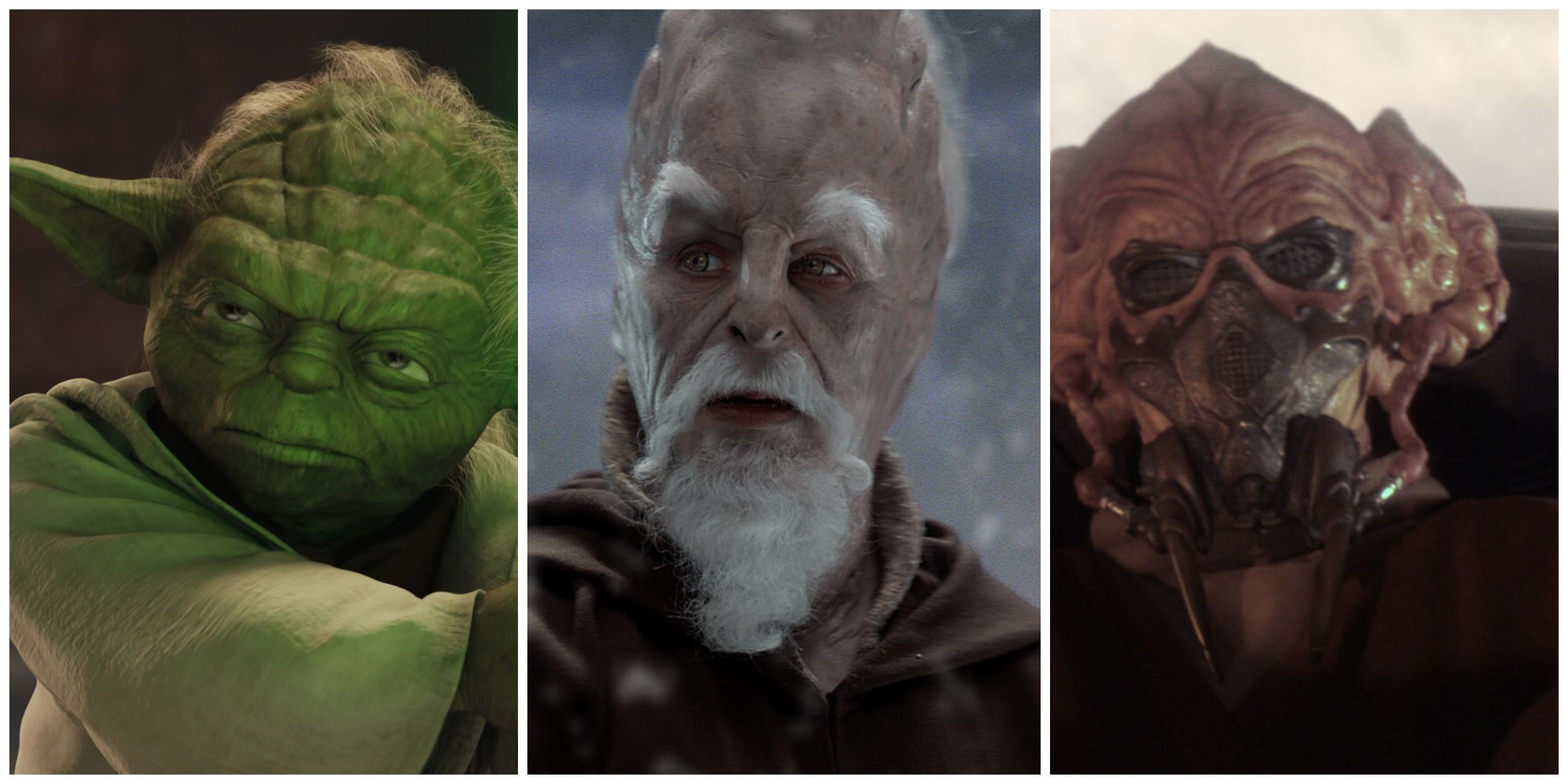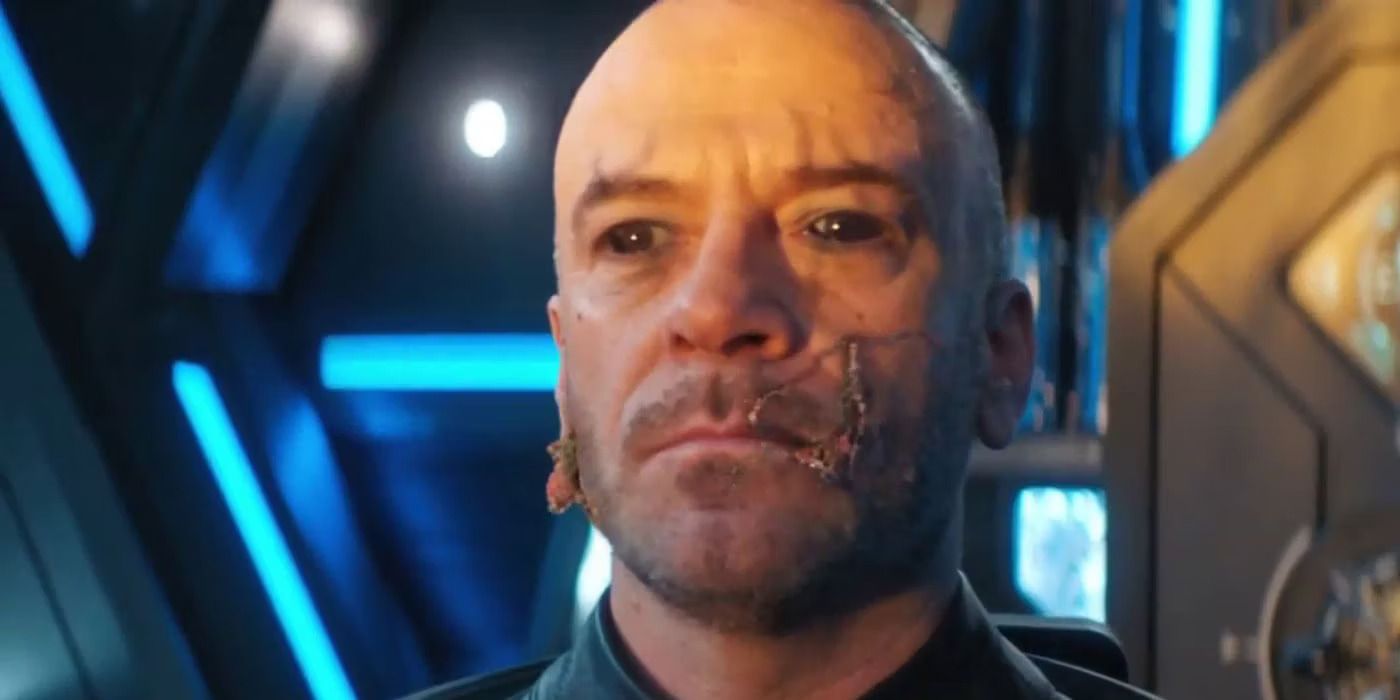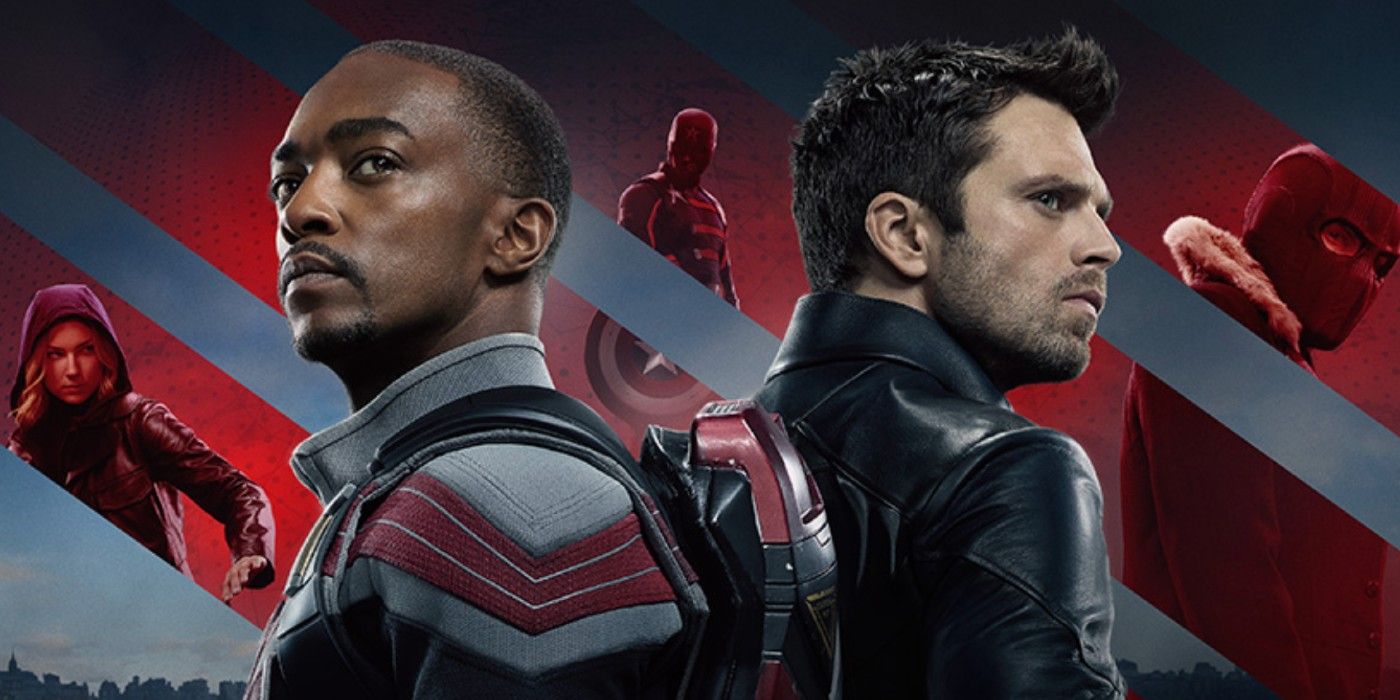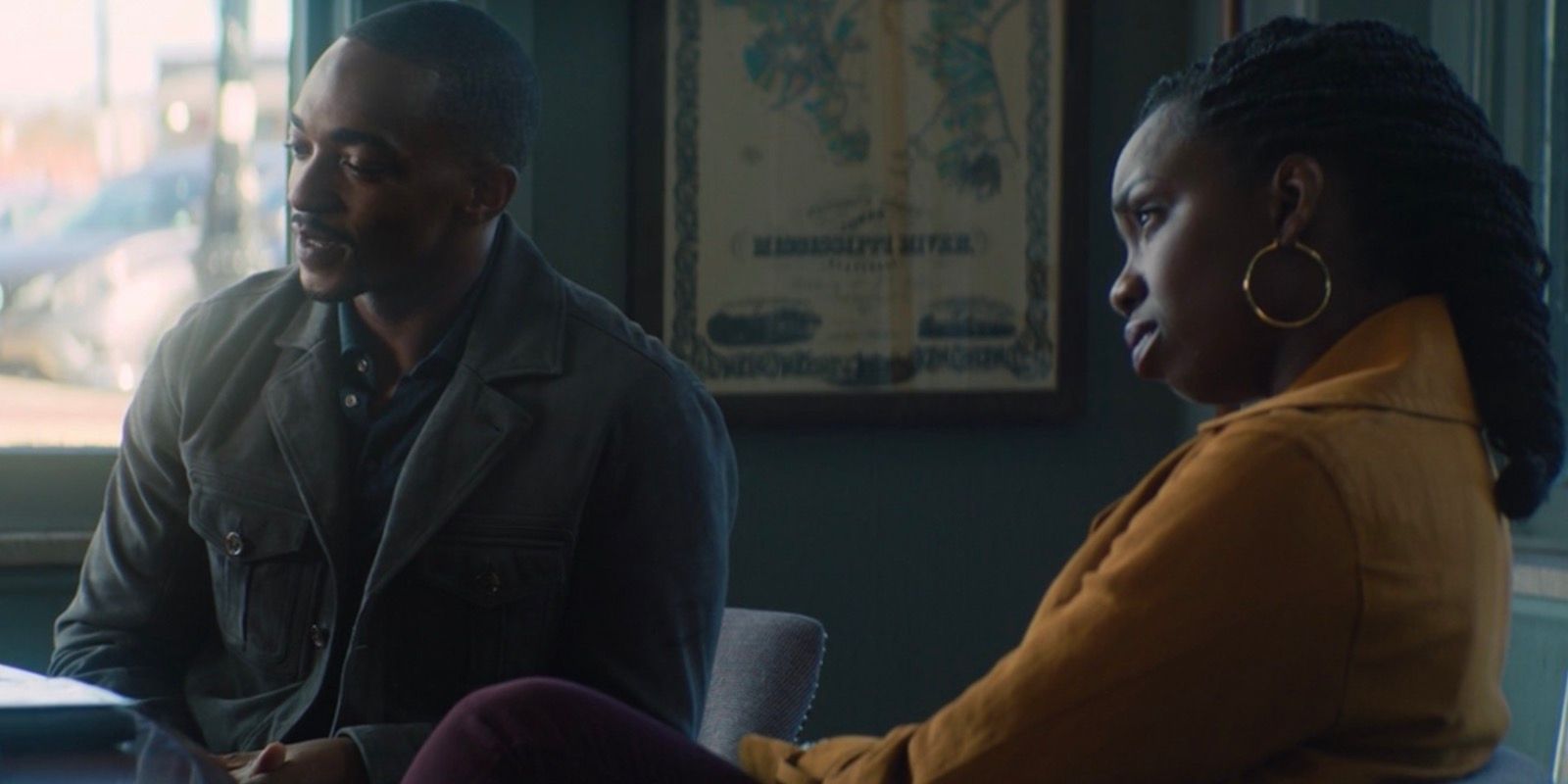This article contains spoilers for The Falcon and the Winter Soldier episode 1.
The highly anticipated The Falcon and the Winter Soldier series finally premiered on Disney Plus on March 19. The MCU series is set to follow Sam Wilson/Falcon and Bucky Barnes/Winter Soldier six months after the events of Avengers: Endgame, which ended with Captain America passing his shield onto Sam. Though they haven't been shown together yet, the six-episode series is meant to show the two superheroes teaming up and it looks like the terrorist group the Flag-Smashers are being set up to cause their conflict. People were expecting high energy and intense action for this series, and it delivered. Based on what was set up in the first episode, and in interviews with the showrunner, it seems like there will also be a lot of emphasis on some real-life, serious subjects.
The first obvious subject touched on here is grief. This has been a really strong element in all of the post-Endgame works seen so far, and it sets the tone for a Phase 4 that might be the most serious plotline in the MCU so far. In Spider-Man: Far From Home, Peter Parker is shown really struggling with the loss of his hero, Tony Stark. Wandavision is almost entirely about Wanda's grief and trauma, both from childhood and from the recent loss of her love, Vision. The Falcon and the Winter Soldier shows both Sam and Bucky having to deal with their loss of Steve Rogers and what that means for their future, and the future of the world. Even America as a nation is shown to be grieving its hero, with the government going so far as to find a replacement.
Bucky's main storyline in the series premiere revolved around his trauma and his PTSD. Ultimately he's a soldier and he's been an active soldier since World War II. The trauma of conflict, war, and violence is very real for a lot of people in the real world, and it affects him just like it would anyone else. He's shown to be having night terrors about his past experiences and actions, and it has an effect on how he lives his life now. Though this has been a part of his journey for a lot of his time in the MCU, the series premiere showed him in therapy and it looks like he's finally making his first real attempt to re-emerge in society as he lives a relatively normal life. It's hinted though that he isn't addressing his problems in the healthiest ways, as he's isolating himself from his friends and shown drinking a lot.
While Sam is also shown to be dealing with some trauma, his main storyline seems to be revolving around his status in society and current struggles with family and finances. Series showrunner Malcolm Spellman, in an interview with Deadline, has said that it's intentional that Sam is being shown as "a decidedly Black character." He's shown dealing with his family business failing, and not being able to get a loan despite being recognized at the bank. He's even asked if he's been living off of Tony Stark's money. Though it's not explicitly because he is Black, it's not an uncommon situation for a lot of Black Americans to face and the scene feels very real. It's not only interesting because it's a unique choice to show a character who is literally a superhero also struggling with how difficult the Black experience in America can be, but also because the embodiment of his character is a completely different person than one would expect Captain America to be.
Captain America is depicted as the all-American, squeaky clean, white suburban muscle man. But that isn't reflective of what America truly is, and adding diversity to what represents America is not only good for inclusivity within the MCU, but inclusivity in American media. This series is telling that story on purpose, and Sam's hesitancy to step into that role because it doesn't feel like it's meant for him is something likely very realistic and relatable. The character of Captain America was always a political one. His creation was in the midst of the Second World War, and he is shown punching Hitler in his first comic book appearance. It makes perfect sense that his story, even though it isn't fully his story anymore, would be the one that is the basis for uncomfortable conversations and real social issues. The writers of the series have also said that this show will continue to have those themes and spark these uncomfortable feelings and conversations.
The series so far has already shown a lot of parallels to what recent years have been like for so many people. Struggling with PTSD, living the experience of a Black person in America, these are real issues being faced by millions right now and it would be inauthentic for the show to shy away from them. A show written during the biggest Black Lives Matter movement in history could not shy away from having that included when one of their main characters is a Black American man, stepping into the role of Captain America. There also seems to be a lot of parallels between the effects of the Blip, and the effects of the current pandemic-- namely the financial issues people are facing, as well as real-life parallels with the amount of political unrest seen within the first episode.
It'll be very interesting to see how these stories play out, as hopefully they're handled in a way that is sensitive and respectful. People want to see themselves represented, to see struggles on TV that make them feel validated, but it's also kind of a fine line. The show has to be authentic, but it can't be bleak or patronizing or people are turned off by it. People also don't like to see things glossed over or idealized, because it loses its relatability. It's too early to fully tell where it's all heading, but it looks like it'll definitely be a piece to think on and a standout in the MCU.






